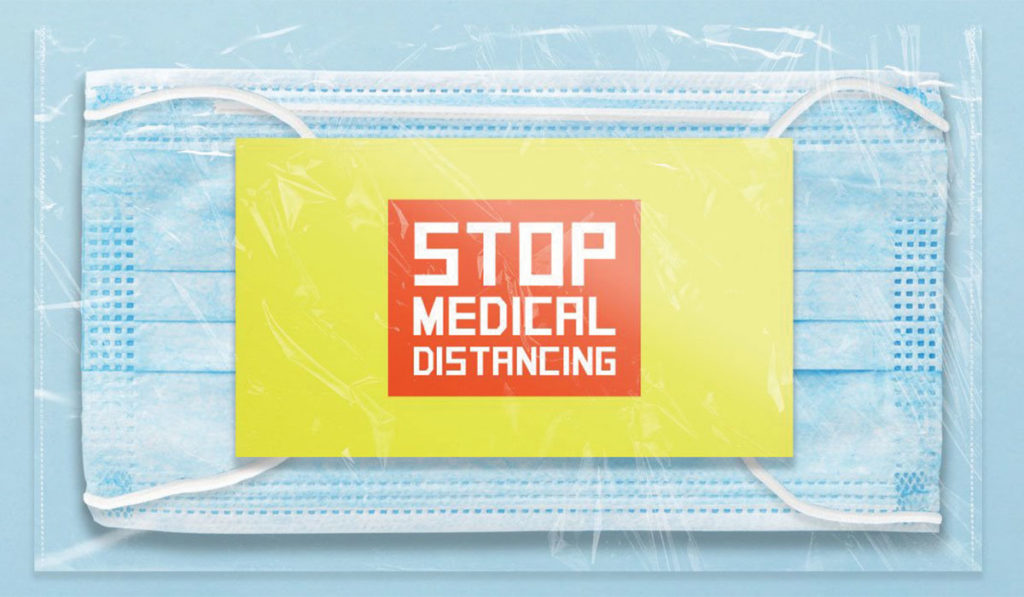
Here we are, six months into the worst pandemic in a century. We have learned how to protect ourselves, how to adapt our behaviors and what matters most in our lives.
In the process, our caution and new behaviors have had unintended consequences in — of all places — our health and well-being. Foregoing medical care to adhere to medically recommended social distancing recommendations is known as medical distancing, and it can have serious consequences.
“When the medical world doesn’t, or can’t, intervene for people with chronic diseases or conditions, these diseases progress and patients get into trouble,” says James Dearing, DO, partner at Synergy Physicians.
Chronic conditions like diabetes, cancer and heart disease impact about 60 percent of Americans, according to Centers for Disease Control and Prevention, with about 40 percent of American’s living with more than one chronic disease.
“Because of the physical distancing and the fear of a very real and potentially dangerous virus, we have patients jeopardizing their health daily,” says Dr. Dearing. “Two of my diabetic patients who were stabilized became too afraid to go to the pharmacy and pick up prescriptions. Both of these patients ended up hospitalized in serious condition with diabetic ketoacidosis. Thankfully, they didn’t contract COVID-19, but if they had, it would have been exponentially harder to recover from either.”
In a study published with the National Institutes of Health, a global survey found most providers experienced a change in their patients’ routine care, with diabetes, chronic obstructive pulmonary disease and hypertension being the conditions most impacted due to reduced care. However, the study also found that 80 percent of providers reported patients having worsened mental health during the pandemic with social distancing.
The adverse mental health outcomes providers are seeing right now is significant. A study by the CDC found that during June, 40 percent of adults in the U.S. reported struggling with mental health and/or substance abuse.
“Throughout this pandemic, only a handful of things will impact us all, and the lack of human contact is one of them,” explains Dr. Dearing. “Human contact and relationships are vital to us as a species, and going without that leads to other problems. We are seeing spikes of depression in people who have never experienced major depression before.”
Helping in part, telehealth has seen a significant and expected uptick since March of 2020 compared to previous years. According to FAIR Health, an independent nonprofit that collects and manages data for the nation’s largest health insurance claims and Medicare Parts A, B and D, there has been a national increase of 4,347 percent in virtual care for March 2020 compared with March 2019. Synergy Health was one of the providers to take telehealth a step further by developing an app into which patients input data like weight, blood pressure, heart rate and blood sugar. “So we can monitor real-time data,” says Dr. Dearing.
Whether it is the virus itself, the fear of the virus or the fear of the unknown, patients have taken medical distancing to a concerning level.
“We have seen between a 40 and 50 percent decrease of patient business,” says Dr. Dearing. “The safest places right now are actually healthcare facilities. The precautions we are taking are much better than anywhere else, and providers need to remind their patients that they are safe at their facilities and that prevention and wellness cannot be neglected.”
As we await whatever the Phase 2 of COVID-19 looks like, schools reopening or not, economic ups and downs, one thing is clear from Dr. Dearing and other providers: Medical distancing is unnecessary and can be harmful to us individually and as a community.
















Speak Your Mind
You must be logged in to post a comment.